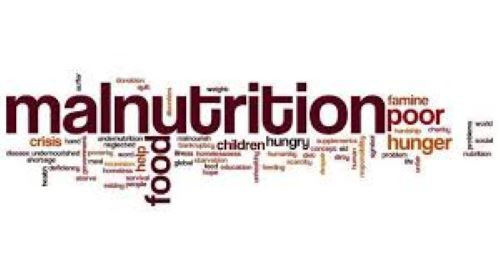The President and Founder of the West African Society of Parenteral and Enteral Nutrition (WASPEN), Dr. Teresa Pounds, has described hospital malnutrition as a “silent epidemic” undermining patient recovery and raising mortality rates in Nigeria and across the region.
Speaking at a virtual media conference on Monday to mark the 2025 Malnutrition Awareness Week themed “United Against Malnutrition,” Pounds warned that malnutrition among hospitalised patients increases healthcare costs, prolongs recovery, and heightens death risks, yet remains poorly recognised and inadequately addressed.
“Hospitalised patients are particularly vulnerable due to underlying illnesses, socioeconomic factors, and limited access to adequate nutrition. Globally, between 20 and 50 per cent of hospitalised patients suffer from malnutrition,” she said.
Although national data is limited, Pounds cited studies from Nigerian tertiary hospitals showing inpatient malnutrition rates between 30 and 45 per cent, particularly among surgical, paediatric, and oncology patients. Children and the elderly were highlighted as the most affected groups.
She referenced recent findings, including:
- Nasarawa State: 41.2% of under-five inpatients had global malnutrition, with 15.8% facing Moderate Acute Malnutrition (MAM) and 25.5% Severe Acute Malnutrition (SAM).
- Magumeri, Borno State: 4% SAM prevalence among admitted children.
- Enugu: 71.3% of hospitalised elderly patients were malnourished, 22.1% at risk, and only 6.6% well-nourished.
According to her, malnourished patients face delayed wound healing, higher infection risks, longer hospital stays, and frequent readmissions. She added that hospital malnutrition is deeply connected to community malnutrition, noting that over 30% of Nigerian children are stunted and 7% wasted.
“These numbers reflect deep-rooted challenges, but they also show why a holistic approach is essential. Malnutrition in the community and in hospitals are two sides of the same coin,” she stressed.
Pounds disclosed that WASPEN is partnering with a Nigerian institution to generate updated national data on hospital malnutrition to push for the integration of clinical nutrition into Nigeria’s health strategies. She also acknowledged the support of international collaborators, including the American Society of Parenteral and Enteral Nutrition (ASPEN).
To mark Malnutrition Awareness Week, WASPEN has lined up activities such as expert-led webinars on clinical nutrition, discussions on integrating nutrition into national health systems, and institution-specific events across Nigeria and West Africa.
“These activities are designed to raise awareness, build the capacity of health professionals, generate new evidence, and secure the national adoption of clinical nutrition strategies that can transform patient outcomes,” Pounds said.
While commending government and partners for tackling community malnutrition, she cautioned that hospital malnutrition must not be overlooked.


